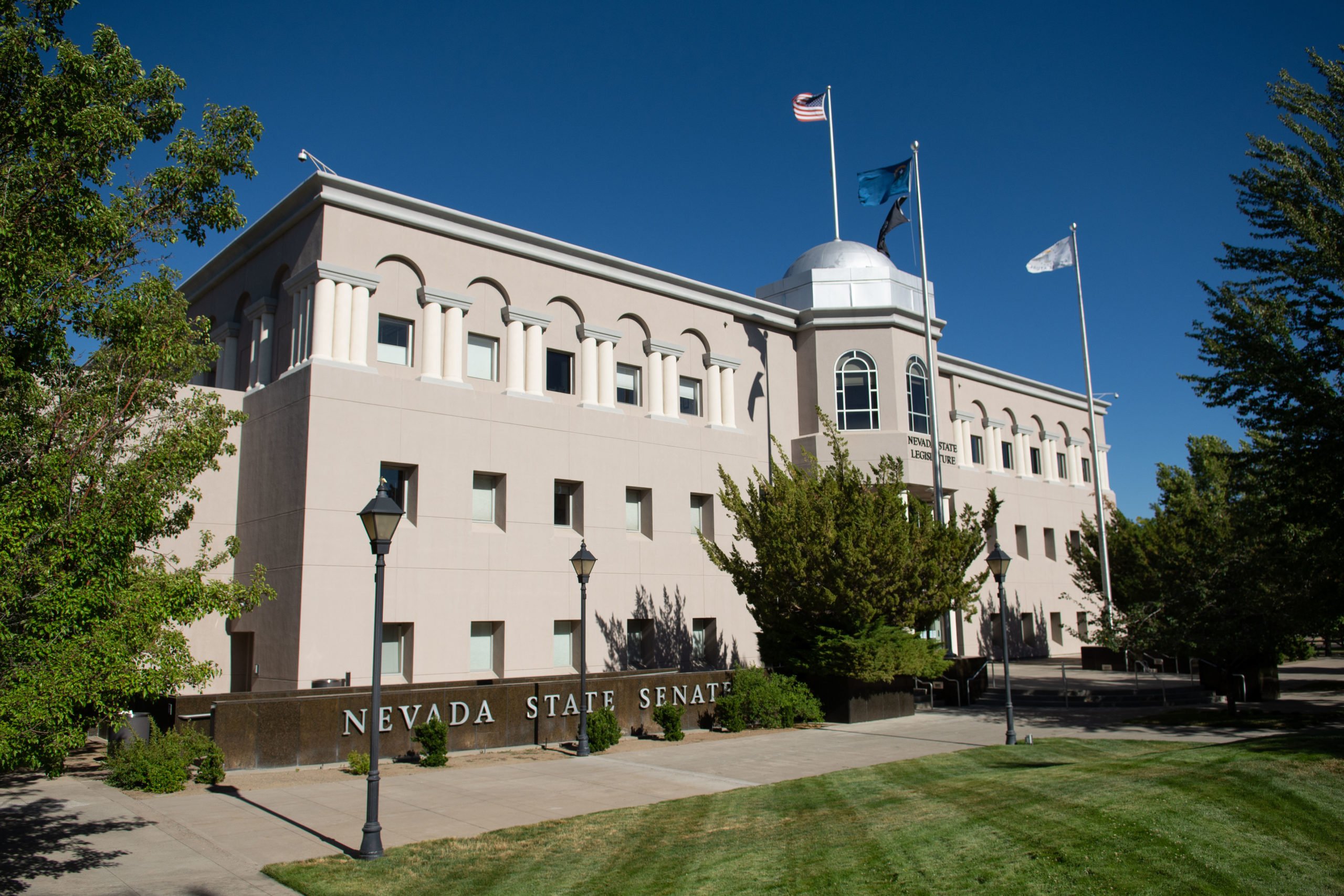State lawmakers are looking at ways to bring revenue into the state to address the $1.15 billion shortfall of the Nevada’s General Fund, caused by shutdowns during the early months of the COVID-19 pandemic. The Nevada Senate on Saturday discussed a bill that would bring in funds from mining and transportation.
Lawmakers in the senate discussed Senate Bill 3, which proposes different revenue options, specifically from mineral taxes. According to Nevada law, taxes on minerals are collected based on the previous year’s net proceeds. SB3 would temporarily require mining companies to pay taxes up front, based on an estimated revenue for the upcoming year, until 2023.
According to Nevada law, mines can only be taxed five percent of their profit. Mining companies brought in a little over $57 million to the state’s General Fund in 2019.
Additionally, mining companies reported a revenue of $7.8 billion, but are eligible for expense deductions, so they reported net proceeds of $2.5 billion, and five percent of that was taxed in 2019.

Republican Senator Ira Hansen voiced his concerns about requiring an industry to pay taxes up front, when others are not required to.
“I would like to know why. How is it we can single out a single industry and force them to pay well in advance?” questioned Hansen. “But that’s not the case for any other tax paying bodies that I’m aware of, unless maybe there’s somebody in the governor’s office where they have actually attempted this for gaming or modified business tax, some other form of taxation. But just seems to me like we’re singling out an industry because they’re just small, they’re rural, and the false assumption is that they are exceptionally lucrative.”
Many people called in to public comment to voice their dismay for the lack of taxes on minerals along with the deduction for expenses mining companies are permitted to take, including Maria-Teresa Liebermann-Parraga, the deputy director of Battle Born Progress.
“Since the inception of our state, mining has never paid their fair share to help the state that they extract natural resources from,” Liebermann-Parraga said. “It is right that they are, quote, now being singled out because they need to pay their fair share at this time more than ever in order to make sure that this state they extract resources from is a better place to live for everyone.”
SB3 also proposes that revenue be redistributed from the Nevada Department of Transportation’s (NDOT) Highway Fund into the state’s General Fund. The highway fund is collected from vehicle licensing and registration and is used for construction, maintenance and repair for public highways. SB3 proposes that 50% of those funds be swept into the General Fund. Right now, about 25% of the Highway Fund goes to the General Fund.
Multiple senators questioned if this reallocation of funds would delay or impact projects. Felicia Denney with NDOT said no.
“The Department of Transportation does keep reserves in the Highway Fund to cover emergencies and [allow] for flexibility and project delivery, and so we’re not anticipating that we would be required to cut any of our projects,” Denney said.
Lastly, SB3 introduces a tax amnesty program, which would waive penalties and interest for a person who was delinquent in paying their taxes. A program like this has not been done in 10 years. There is about $350 million in unpaid taxes, and $60.8 million just within the last three years. The Executive Director of the Department of Taxation, Melanie Young, said the department expects to collect 30% of the taxes from the last three years, which would generate $20.6 million. Half of that would go to the General Fund and the other half would be distributed to local governments.
Republican Senator Heidi Gansert supported the tax amnesty program.
“I do think taxpayers want to pay what’s due, but sometimes they get overwhelmed by the interest and penalties and maybe they don’t even know how to address it. So if you have a program set up, I would imagine there’s quite a few folks who’d be out there who would want to participate. I think this is a great idea because it’s better to get some money versus no money, and offering this opportunity may well bring in substantial dollars,” Gansert said.
SB3 has not undergone a vote yet.
Feature image: The Nevada Legislature on second day of the 31st Special Session in Carson City, Nev., on Thursday, July 9, 2020. (Pool Photo by David Calvert/The Nevada Independent)


